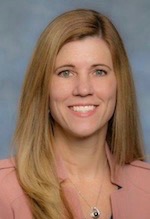Daily Business Report-May 15, 2018
Gov. Jerry Brown explains his revised budget plan. (Photo by Antoinette Siu for CALmatters)
An Ungiddy Governor Wants to
Stash Most of State’s Surplus —
says ‘Let’s Not Blow it Now’
By Antoinette Siu | CALmatters
Nothing good lasts forever.
That was the familiar message reverberating from Gov. Jerry Brown on Friday as he unveiled his updated version of the 2018-19 state budget—his 16th budget in his final term as governor. California’s strong economy is not going to last, and Brown says he is doing everything he can to safeguard against the next recession.
“Let’s not blow it now. We worked too hard for that,” Brown said.
What that translates to is, saving more and spending less on programs that come with ongoing costs. Instead, Brown proposes using this year’s higher-than-expected revenue toward one-time spending—using it to address homelessness and mental health and improve infrastructure at universities, state buildings and courts.
In January, the governor presented a proposed budget that included a $6.1 billion expected surplus. Now that surplus has grown to about $8.8 billion, thanks to big boosts from personal income and corporate taxes, Brown said he is committed to depositing most of it into reserves and the state’s Rainy Day Fund, which will have a balance of $9.4 billion at the end of this fiscal year.
As usual, much of the state’s total budget of $199.3 billion will pay for education and health care, which have seen increases since the last recession. The budget proposes spending an additional $4,600 per student compared to spending in 2011-12, which would bring the annual amount the state spends per pupil to about $11,628.
By the time Brown returned in 2010 to begin his second two-term stint as governor, there was a worldwide recession and the state faced a $25 billion deficit. Since then, California’s unemployment has dropped from 12 percent to a record low 4.6 percent. The economy has added 2.4 million jobs, and hourly wages increased by $4.76 an hour.
“It can get giddy at the peak,” Brown said. “Don’t fall over. I try to leave the most responsible budget I can to the next governor.”
Saving for later
By prioritizing one-time spending on infrastructure, homelessness and health needs rather than ongoing spending, the budget frees up some $6 billion to go toward the Rainy Day Fund, a mandatory reserve governed by rules, and the state’s discretionary reserve fund. Proposition 2 passed in 2014 established a goal of reserving 10 percent of tax revenues to the Rainy Day Fund by increasing savings when capital gains are high.
The state’s short-term goal is to continue fully filling that fund in order to prepare for a downturn. A moderate recession will drop state revenues by more than $20 billion annually for several years, according to the governor’s office.
Where to spend the rest?
The proposed budget leaves about $4 billion toward one-time expenditures in three areas.
Half of that would go to deferred maintenance—money for universities, the state and courts to pay for upkeep on buildings, equipment and levee repairs. The state has a huge backlog of infrastructure needs with a price tag of $20 billion, said Michael Cohen, the state’s finance director.
Brown also proposes distributing $359 million to help local governments combat homelessness, including $50 million for services for people with mental illness.
His proposed budget also adds another $312 million to develop better early detection of mental health illnesses, and education for mental health professionals, with a focus on psychiatry.
Other priorities he’s carved out include an additional $96 million more for wildfire prevention efforts such as thinning forests, $134 million for voting equipment and $16 million for earthquake early warning systems.
Key Democrats want more; Republicans want a refund
Brown’s so-called “May revise” is just one more pulse point on the way to a final state budget. Democratic legislative leaders now have several weeks to try to squeeze in more funding for for health care, education, housing and other asks between before the state’s June 30 deadline to put a new budget in place.
Their wish list includes a broader expansion of various health benefits for people lacking sufficient coverage. One controversial item: health coverage for all undocumented immigrants living in California. In 2015, California approved legislation to cover undocumented children and allow them to enroll in Medi-Cal, the state’s health care program for poor people.
Universal health care advocates like Anthony Wright, executive director of Health Access, say they’ll continue to push for coverage for adults. They insist everyone benefits when the sick among us can get treatment; critics counter that the state can ill afford to assume medical bills for immigrants not in the country legally.
About 200,000 undocumented children have enrolled in Medi-Cal, coverage that has cost the state about $180 million. Covering undocumented adults would cost an estimated $400 million, according to Wright.
Assemblyman Phil Ting, the San Francisco Democrat who chairs the Assembly Budget Committee, applauded Brown’s commitments toward homelessness but wants to allocate more for health coverage and higher education.
“When we craft a spending plan that addresses these issues, we make our state stronger and build a brighter future with opportunity for all — while still saving for a rainy day,” Ting said in a statement.
Some don’t think the surplus belongs to the state at all. State Sen. Ted Gaines, an El Dorado Republican, thinks a refund to the taxpayers is in order.
“This is Governor Brown’s last budget and thankfully so. He’s spent 8 years talking about fiscal discipline and prudence while supporting new taxes, fees and spending at every turn,” Gaines said. “He’s leaving behind a legacy of poverty, massive homelessness, and if he keeps this surplus, theft.”
Of course Republicans have no real influence on the final budget. The Legislature can approve its version with only a simple majority, so the Democrats who dominate both chambers are in control.
_________________

University Heights Apartments
Sold for $5.3 Million
A 19-unit University Heights apartment building, located at 4560 Florida St., has sold for $5.3 million to George Mazis of the Mazis Family Trust. The seller was the Kathryn Hattox Trust.
The apartment building, built in 1970, is a mix of 13 two-bedroom and six one-bedroom units. The property will be managed by Altas Management Group, a local apartment management company.
Kidder Mathews represented the buyer. The seller was represented by Scott & Quinn Real Estate.
_________________
Port Coordinates with Navy on
Potential Impacts of Sea Level Rise
The Port of San Diego has formally agreed to coordinate with the U.S. Navy to prepare for potential impacts of sea level rise. At its meeting on May 8, the Board of Port Commissioners authorized a Memorandum of Agreement (MOA) with Commander Navy Region Southwest, the first agreement of its kind between the U.S. Navy and a West Coast port.
Under the agreement, the Port and the Navy will share information, evaluate the best available scientific information and modeling related to sea level rise and collaborate to identify complementary adaptation policies and measures.
“The Port and the Navy are responsible for the San Diego Bay coastline —it’s vital that we work together to evaluate and plan for the potential impacts of sea level rise,” said Port Chairman Rafael Castellanos. “Our partnership ensures that we will continue to be a resilient, strategic port and economic engine well into the future.”
_________________
Tumor-like Spheres Help Scientists
Discover Smarter Cancer Drugs
Researchers from The Scripps Research Institute are reporting an innovative new method to screen for potential cancer drugs. The technique makes use of tiny, three-dimensional ball-like aggregates of cells called spheroids. These structures can be used to interrogate hundreds or even thousands of compounds rapidly using a technique called high throughput screening. In fact, by using this approach, the team has already identified one potential drug for an important cancer gene. The results were reported in the journal Oncogene.
_________________
City’s Chief Information Officer
Recognized as Top Tech Executive

The city of San Diego’s chief information officer, Jonathan Behnke, has been honored with a Cox Business Top Tech Exec Award in the CIO Government category at an annual ceremony. The award honors outstanding information technology executives who work in San Diego.
Behnke, who directs the city’s Department of IT, was recognized for his efforts in building a strong technology-driven community within San Diego. Among his accomplishments:
- Managing a project to reduce power to more than 14,000 city computers and laptops through a new cloud-based solution, which is projected to save $285,000 annually and help meet the city’s sustainability goals;
- Spearheading an initiative to upgrade the city’s digital capabilities to serve its 1.3 million residents;
- Prioritizing employee training and retention, and increasing IT service management certification within the department from 10 to 90 percent; and
Converting Portable Document Format (PDF) files on the city website into online forms that facilitate the submittal of electronic signatures.
Other Top Tech Exec honorees:
Education: Terry Loftus, Chief Technology Officer, Oceanside Unified School District Nonprofit Small: Angela Moran, Chief Information Officer, California Coast Credit Union
Nonprofit Large: Alicia Rodriguez, Chief Information Officer, San Ysidro Health
Private Micro: Ryan Rusnak, Chief Technology Officer, Airspace Technologies Inc. Private Small: Ryan Fay, Global Chief Information Officer, ACI Specialty Benefits Private Medium: Jerome Fodor, Chief Technology Officer, AbacusNext
Private Large: Brad Williams, Director of Information Technology, Petco
Private Mega: Michael Hawman, Vice President/Chief Information Officer, General Atomics
Public Small: Hudson Airom, Director of Global Cloud Operations, Mitek Systems Inc. Public Large: Troy Seelye, Vice President and Chief Information Officer, Teradata
_________________
General Atomics Advises Middle East
Clients to Start Drone Requests
ExecutiveBiz
General Atomics has started to advise potential clients in the Middle East and other regions to begin purchase requests for drones they intend to buy from the U.S. government, according to Defense News quoting Jim Thomson, the company vice president of international strategic development in the Middle East, North Africa and the Americas.
Thomson said at the Special Operations Exposition in Jordan that the request process for unmanned aircraft systems should start as the Trump administration drafts a new policy that aims to ease restrictions on foreign military sales of UAS and allow a company and a foreign country to negotiate a direct commercial sales agreement.
He noted that the U.S. government will still evaluate on a case-by-case basis each potential FMS deal for drones that he believes is likely to be approved.
Thompson added that General Atomics has clearance to supply manned-unmanned teaming capability to countries in the Middle East through FMS agreements.
_________________
UC San Diego Extension to Offer
Workshop for First-Time Home Buyers
To help local consumers increase their knowledge in real estate transactions and become more informed consumers, UC San Diego Extension is offering “A Primer for First Time Homebuyers” workshop, which provides an opportunity for homebuyers to learn about the entire homebuying process in an unbiased, non-sales environment. The workshop will give an overview of the San Diego housing market, what to understand about the purchasing process and how to identify target properties.
Registration for the workshop is $45 and will be held on Saturday, June 9 from 8:30 am to 12:30 pm at Extension’s University City Center at 6256 Greenwich Drive, 92122. Free parking and light breakfast will be included.
Leading the workshop is Timothy J. Cassidy, president, CEO, corporate broker and general contractor of Cassidy & Associates Real Estate Inc. He has over 30 years of experience providing residential and commercial real estate sales, property management services, attorney support, and real estate expert witness and consulting services.
For more information on the workshop or to register, visit extension.ucsd.edu/moneyessentials.
_________________
Personnel Announcements
Noelle Brown Joins PC Housing

Corporate housing specialist Noelle Brown has joined PC Housing as business development manager. Brown is an experienced sales professional with more than 20 years of experience and knowledge in global mobility, relocation and contract negotiation.
In her new role, Brown will build strategic partnerships with organization leaders and effectively align and support key business initiatives while working towards improving the temporary housing experience for both temporary and transferee needs, and identify innovative and cost-effective solutions for PC Housing’s clients.
Prior to joining PC Housing, Noelle was the global sales representative for MyKey Global Accommodations and senior national account manager for Oasis Corporate Housing. Noelle is a member of the Worldwide ERC, Corporate Housing Providers Association, and the National Apartment Association.
_________________
Valerie Kwiatkowski Joins San Diego County Credit Union

Valerie Kwiatkowski has joined San Diego County Credit Union as executive vice president of information technology. Bringing with her over two decades of experience in information technology management, Kwiatkowski is responsible for directing, planning, organizing and controlling all activities of the credit union’s IT department to ensure the effective, efficient and secure operation of all automated data processing systems.
Prior to joining SDCCU, Kwiatkowski served most recently on the Quality Engineering Team within Global IT for Apple Inc., based in Cupertino. At Apple, she was responsible for implementing standard technology tools, processes and controls across all quality engineering teams within retail. She also served in IT leadership roles as vice president of global IT for Universal Electronics and chief information officer for ICU Medical Inc. and Ports America.
Kwiatkowski earned her master’s degree in Management and Public Policy Analysis and her bachelor’s degree in Public Policy and Management from Carnegie Mellon University in Pittsburgh, Pa.

